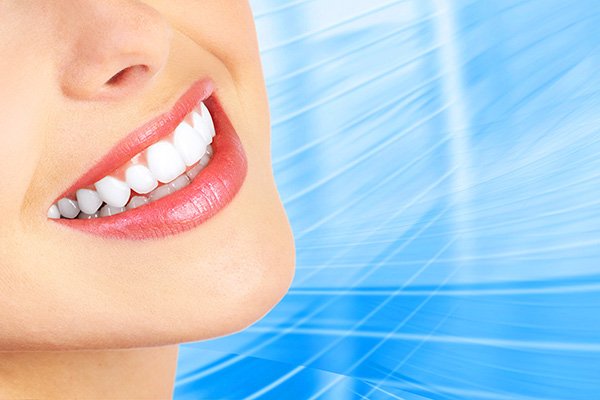
1. One must consult a dentist if your teeth hurt.
You might remember the old saying, “prevention is better than cure.” What’s comparatively less detected is that diagnosis of tooth decay at an earlier stage is way easier and cost-efficient than if it were to be addressed later.
Even if you aren’t experiencing dental pain, we advise consulting a dentist twice a year for routine cleanings and exams. Some dental problems are symptomless however will still cause infection and wish treatment. Also, the tooth is less likely to be saved later.
2. Flossing will produce areas between your teeth.
Flossing doesn’t produce areas between your teeth, and Flossing helps forestall decay between your teeth. After you floss, you’re removing food dust snuggled around your teeth and gums, which helps keep them healthy and removes harmful bacteria. After you begin a flossing routine, you will need expert hemorrhage gums; however, once several weeks of regular Flossing, the bleeding tends to decrease. If your gums still bleed with flossing over time, the gum disorder may be severe, and I advocate seeing your dentist verify the cause and correct treatment setup.
Sometimes if you’ve got plaque and tartar buildup in between and behind your teeth, they are often tough to floss. A hygienist will facilitate removing that buildup and make it easier for you to determine a productive flossing routine. Learn the way to floss.
3. It’s only a deciduous tooth.
Baby teeth are important! They supply the mandatory area for permanent teeth to line up beneath the gums and grow properly. If not addressed right away, cavities in baby teeth can cause tooth loss abundantly sooner than is natural, leading to an area. If this happens, a dental practitioner will build a synthetic area protagonist until the adult tooth grows. However, baby teeth are the most straightforward natural area maintainer.
They make sure that your child’s teeth are healthy. If a toddler isn’t brushing and flossing their baby teeth, odds are they won’t brush and floss their permanent teeth either, which results in many severe and expensive dental problems as they age. Therefore touched all, it’s over simply a deciduous tooth.
4. It doesn’t matter what time of day I brush.
While we tend to advocate that every one of our patients brush their teeth a minimum of doubly each day, brushing at an exact time will control your oral health. At midnight, once we sleep, our secretion glands manufacture less spittle. Throughout the day, our spittle flow increases, providing a cleansing impact that we tend not to get at midnight. In general, those with dryness (whether naturally or thanks to medication) have a lot of cavities because they need less natural spittle to cleanse their mouth and wash away food particles. So, once we don’t brush our teeth in the dead of night before bed, those food particles sit on our teeth all night and contribute to decay over time. Brushing in the morning not solely fights decay but conjointly helps fight unhealthy breath.
Furthermore, the selection of diet plays an integral role in oral health. It’s advised to brush right once overwhelming food and drink high in sugar and carbohydrates to stop cavities.
5. Diet sodas are okay to drink, as they don’t have sugar.
Though diet sodas don’t have cavity-causing sugars, they are still highly acidic. Our mouth has acidophilic bacteria that contribute to cavities. Diet sodas have a pH level of 2-3, whereas water is neutral at seven (for reference, battery acid is incredibly acidic at a pH level of 0). The acid in diet soda damages the enamel (the outer protective layer of our tooth surface), inflicting tooth sensitivity. Some individuals slowly sip their sodas throughout the day; that is genuinely a lot venturesome. When taking a sip, the bacterium in your mouth begins to figure with the acid and attack your enamel. It takes twenty minutes for your mouth to neutralize that acid once more, and every time you sip, that 20-minute attack starts over.
Besides soda, different acidic beverages, like orange and citrus, can cause similar injuries. Water, vegetable juice, and milk are the healthiest alternatives to keep your body hydrous.
6. “Oral health isn’t connected to the remaining of the body.”
Your oral health is connected to your general (overall) health, and there are several correlations between your mouth and body. A mug with severe decay and disease probably causes the bacterium to enter the blood, leading to different health problems. Studies have found a link between infection and cardiovascular disease, diabetes, cancer, and more. Learn a lot about oral and heart health in our drthaj blogs.
7. “My teeth are unhealthy as a result of my ageing.”
Ageing isn’t intuitive thinking about deteriorating oral health. Those who watch out for one’s teeth throughout childhood and adulthood can still have healthy teeth in their senior years. Similarly, simply because you’re young doesn’t mean your teeth are healthy. I have seen many cases where patients in their 20s and 30s have such severe dental decay that they need to get dentures and bridges. Oral hygiene is essential; it’s not about age. Brush and floss throughout your life to keep your mouth healthy.


